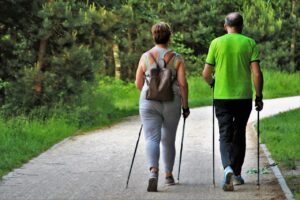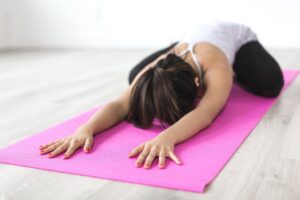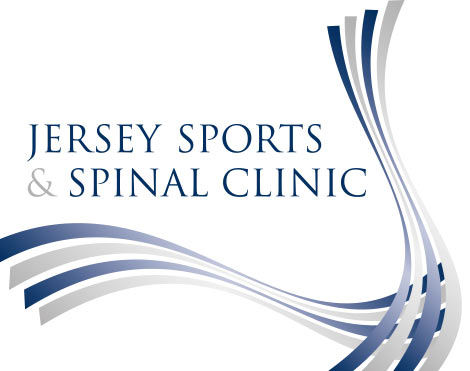
In today’s fast-paced world, it’s easy to get caught up in the hustle and bustle of daily life in Jersey. We often find ourselves overwhelmed with business, stress, anxiety, and sometimes a sense of overwhelm. And there’s never enough time, right? But what if I told you that there is a simple solution to all of these problems? What if I told you that exercise could be the key to a happier, healthier life?
Exercise, in whatever form, and for however long, just makes life feel better. I feel it myself after a walk along the Railway Walk to Corbiere, a jog parkrun, or a sweaty spinning class. The physical benefits of movement such as lowered blood pressure, reduced risk of diabetes and cancer, and healthy aging, are well-known, and we’re beginning to understand more about the mental health benefits as well.
One of the most interesting health research projects of the past decade or so has looked at how exactly exercise makes us feel good. Research shows that there appears to be a clear scientific reason, that we can see at a cellular level. When muscles contract, they secrete chemicals into the bloodstream. Among these chemicals are myokines, which have been referred to as “hope molecules”. These small proteins travel to the brain, cross the blood-brain barrier, and act as an antidepressant. They do this by improving our mood, our ability to learn, our capacity for movement, and protect the brain from the negative effects of aging.
But it’s not just myokines that make exercise so beneficial. Exercise also releases neurotransmitters such as dopamine, noradrenaline, and serotonin that have a positive impact on our brains. These chemicals help improve our metabolism, reduce inflammation, and increase muscle strength. It’s no wonder that exercise has such a profound effect on our overall well-being. The links between physical activity and mental health are acutely true for children and young people as well. Studies have shown that physically active teenagers in team sports have higher self-esteem and life satisfaction. The same is true for university students, where a clear association was found between inactivity and poor mental health. With the stress of adolescence and uncertain futures, sport, especially team sport, is a good protective measure for mental health.
But unfortunately, trends are going the wrong way. Young people are spending more time on devices and less time taking part in physical activities. This has significant ramifications for mental health. Studies have shown that excessive screen time is associated with lower psychological well-being and an increased risk of depression among teenagers. We could do so much more to promote a healthy, lifelong relationship with exercise. It’s not just about staying a certain weight or being a certain size; it’s about keeping our bodies functioning and strong. It’s about the ability to keep up with our children and grandchildren. Exercise is especially important with aging to maintain independence in daily life. Let’s be honest, don’t we all want to wear out, not rust out?

So, when you’re feeling low, instead of turning to a device or tv, try getting moving. Join a team, go for a long walk, or find a community gym or yoga class. You’ll be amazed at how much better you feel afterward. Exercise is truly the key to a better life. We understand that it’s not so easy to get started, sometimes pain and immobility can hold you back. This is where we can help. Our team is both experienced and qualified to help you. We can carry out a thorough examination and devise you a programme to help you get active again. physiotherapy and Soft Tissue therapists can help you to feel better so that you can move better!
Let’s make exercise a priority. Let’s not put it off by saying “one day” instead let’s say, “Day 1”. Let us help you on Day 1. Book now and discover for yourself how exercise really IS the key to a better life.

